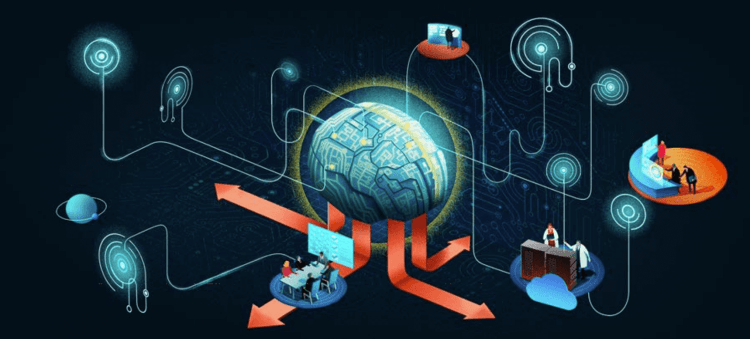Want smarter insights in your inbox? Sign up for our weekly newsletters to get only what matters to enterprise AI, data, and security leaders. Subscribe Now
Conventional wisdom holds that artificial intelligence is the next great horizontal technology that will unleash future waves of innovation. Yet AI is not a single type of technology. It takes many forms and encompasses many, many uses. And to focus on AI is to miss the forest for the trees.
The forest here is machine intelligence, or MI, according to Deloitte’s annual Tech Trends report, which was released today. Business spending on MI is forecast to reach $31.3 billion by 2019, according to IDC.
Deloitte’s report, Tech Trends 2017: The Kinetic Enterprise, describes AI as a subset of a larger, more important category of technologies (MI) that also include machine learning, deep learning, cognitive analytics, robotics process automation (RPA), and bots, to name a few. “Collectively, these and other tools constitute machine intelligence: algorithmic capabilities that can augment employee performance, automate increasingly complex workloads, and develop ‘cognitive agents’ that simulate both human thinking and engagement,” the report states.
Deloitte cites three factors driving the rise of MI:
AI Scaling Hits Its Limits
Power caps, rising token costs, and inference delays are reshaping enterprise AI. Join our exclusive salon to discover how top teams are:
- Turning energy into a strategic advantage
- Architecting efficient inference for real throughput gains
- Unlocking competitive ROI with sustainable AI systems
Secure your spot to stay ahead: https://bit.ly/4mwGngO
- Exponential data growth: Corporations are awash — no, drowning — in data, and desperately need tools to analyze and act upon the information. Deloitte cites estimates that show the amount of collected data doubling every 12 months and reaching some 44 zettabytes in size by 2020.
- Faster distributed systems: Data is now paired with dramatic increases in computing power and speed and races through massive distributed networks that span the Internet of Things, all kinds of sensors, and embedded intelligence devices.
- Smarter algorithms: “MI algorithms have advanced steadily toward achieving cognitive computing’s original goal of simulating human thought processes,” the report states, and predicts their broad adoption over the next 18 to 24 months. Use cases will include optimization, planning, and scheduling; determining probabilities; and robotic process automation through bots, among other tasks.
Collectively, MI technologies like speech recognition, natural language processing, and machine learning will help businesses automate many tasks traditionally done by humans, thereby driving greater efficiency and productivity. Large tech companies like Alphabet, Amazon, and Apple are betting on delivering these services to businesses. In turn, venture capital firms have loaded their portfolios with MI-focused startups at the bottom of this food chain (see table below).

Above: Machine intelligence’s impact: Sample acquisitions and investments, 2014–2016
Deloitte’s 2016 Global CIO Survey had asked 1,200 IT executives to name new technologies in which they planned to invest significantly over the next two years: 64 percent of those included cognitive technologies, or MI.
The report includes some advice for businesses looking to embrace MI. Amazon’s Maria Renz, vice president and technical adviser to the CEO, and Toni Reid, director of Amazon Alexa, write: “We advise looking at your customer base, listening to them, and understanding their core needs and ways in which you can make their lives easier… don’t be afraid to invent on the customer’s behalf—customers don’t always know what to ask for. If you have the right focus on the customer experience, the rest should fall into place.”


